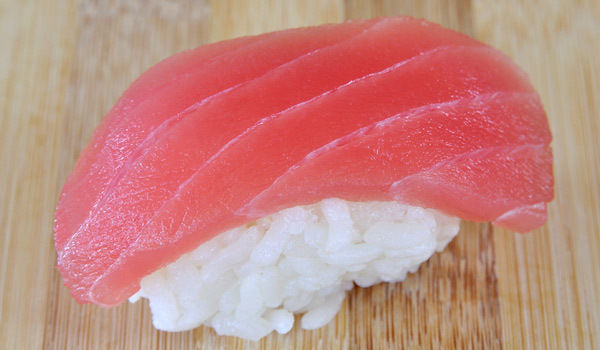Sushi. Sashimi. Both delicious, both abundantly available in supermarkets and restaurants across Japan and of such a quality and price as to ensure that the next time I take a seat at a Yo!Sushi in Britain I know I will be left poverty stricken and disappointed. Prepared perfectly, there are few things that compare in my mind to maguro sashimi (raw tuna).
It elicits a similar response in all my students. Tuna seems to be universally adored in Japan. Indeed so loved, that there appears to be something of a disconnect between the brain and the taste buds.
After months of reading about the rapidly declining tuna population and the failed attempt to prohibit international trade of bluefin tuna from the Atlantic and Mediterranean I decided, perhaps a tad foolishly to inquire what my students thought of the suggested reductions in both catch sizes and trade. Presented to them in a lesson on ‘giving opinions’ as, ‘I think that Japan should fish less tuna.’ Then prompted to agree or disagree. Intended as a sly way of provoking some heated discussion it merely revealed how conflicted they felt about the issue as the clear answer I received was conveyed through a shuffling in their seats and an evident squirm.
Every bloody one of them. Some with a knowing laugh, some with a smile, some with a little look of shame and some with downright defiance. Even when they acknowledged that stocks were rapidly declining they simple could not stand the thought of going without it. To put it in context, it’s equivalent to asking a British person to reduce their intake of bacon sandwiches. Even if a heart attack were imminent and a single two pigs left to breed, they’d still think long and hard about their options; before thinking, sod it I won’t be around to miss them anyway.

Photo credit: Life Science
A BBC article last month noted that the Japanese consume around 80% of the bluefin tuna caught in the Atlantic and Mediterranean. In addition to this, the Japanese Times noted that the Japanese account for around 70% of Pacific tuna caught. More alarming than that figure however is that the average size of the catch is decreasing as over fishing is leading to a younger and younger catch. The danger of this is that if caught before age three the tuna will not have produced any eggs and so the population decline will only accelerate. In fact, the Japan Times article also noted that the average weight of the tuna caught had declined from around 100 to 150kg in the eighties, to around 50kg now.
Obviously this is an unsustainable level of individual indulgence, which all modern diets that contain a daily intake of meat are. Yet, what my students tended to focus on was not that this was not caused by Japanese consumption but rather by Chinese consumption. My students suggested that the increasing popularity of sushi in China means that they consume almost as much raw fish as the Japanese do. Evidently not tuna if the latter statistics are anything to go by and even if China did consume as much, a nation of 1.3billion people consuming as much fish as a country of 120million is more of a damning stat against the Japanese.
One of my students suggested that just as Inuits in Alaska receive special dispensation to hunt whales for food as a particular allowance to their culture, so should the Japanese receive such an allowance for tuna. The problem is Japan is not a small community hunting a sustainable number of an animal. Indeed on a side note they flaunt such bans on hunting regularly with ‘scientific’ catches of whales that inevitably end up on people’s plates. Yet, such a cultural argument isn’t even applicable in this case. Masayuki Komatsu, formerly a researcher at Japan’s Fisheries Agency, referenced in a great article in the Financial Times, noted that the year round consumption of tuna is in reality far from the traditional diet of the Japanese and that eating fish as they come into season and as such are found in greater abundance is, ‘the true dietary culture of the Japanese people’.
Yet, for all the damning figures any change in the approach to tuna fishing and consumption in Japan will have to come from Japan and not international rapprochement. The thing is, we’re simply not seen as ‘getting’ how the Japanese feel about tuna. If the regular closing of the Tokyo ,Tsukiji fish market auction room, due to foreigners touching the incredibly expensive fish, is anything to go by, they might be right.

Matt Keighley was born in New Jersey, raised in Yorkshire, and is now living in Japan. He is a freelance writer and English Language Teacher currently based in Nagano Prefecture, Japan. His most recent work, aside from the blog, can be found in the soon to be released The High on Life Book, a collection of inspiring tales from young leaders around the globe. Earlier work can be found predominantly on the BBC Radio Leicester website where he was a guest contributor for a number of years while studying for an English degree at the University of Leicester.
Following three years of indulging my passion for literature, he ventured a little further south to dive into the world of politics, economics and other subjects of that particular ilk at University College London. While in the capital, he did some work for the Canadian based charity End Poverty Now and even contributed scenes to a Dr. Seuss inspired nativity play.










